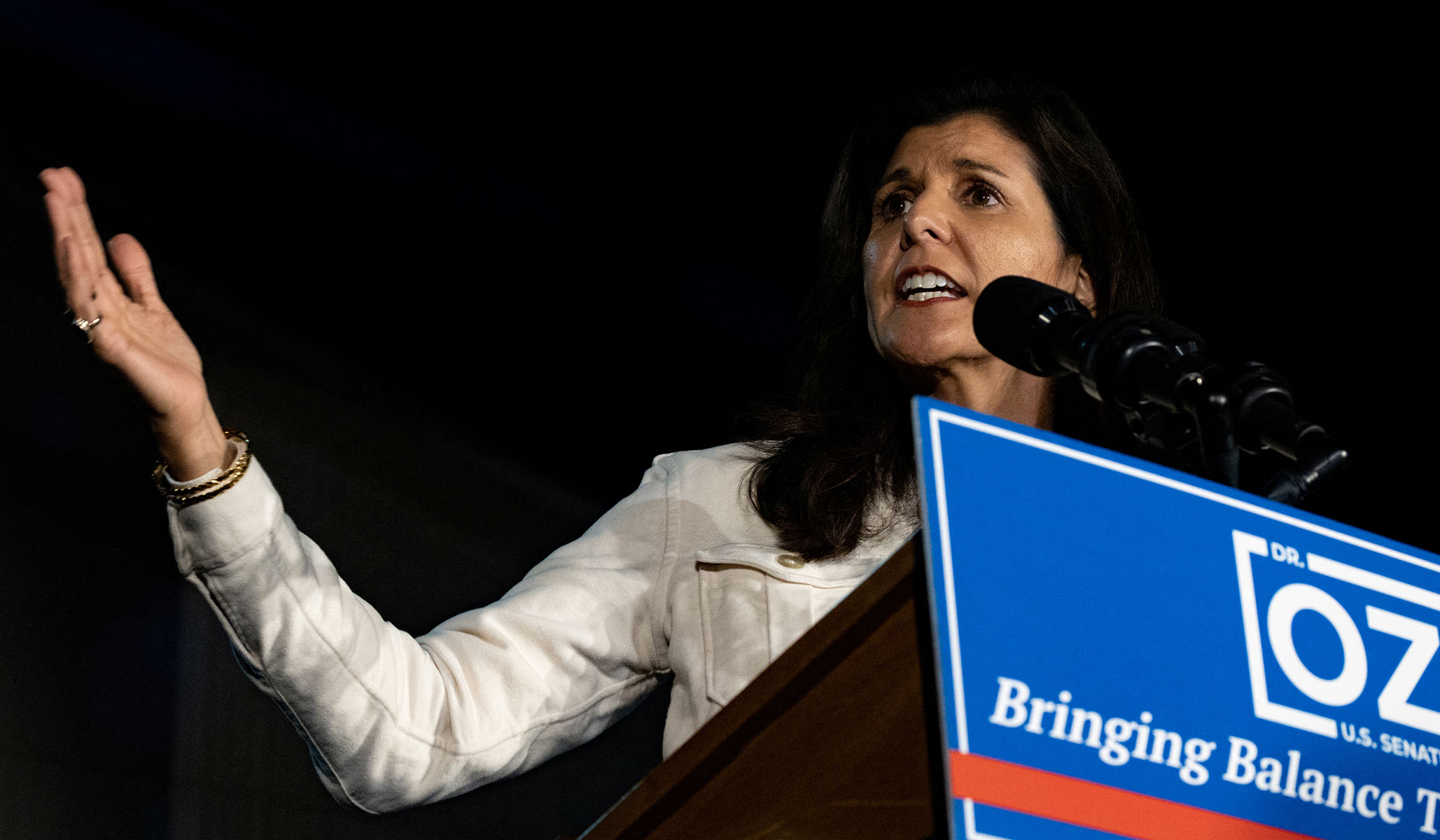


Republican presidential candidate Nikki Haley on Monday accused President Biden of falsely suggesting his administration is not bailing out Silicon Valley Bank’s depositors after the bank’s collapse.
SVB collapsed Friday amid a sudden bank run and capital crisis. The FDIC guarantees deposits up to $250,000 but the vast majority of SVB deposits exceeded that amount.
The Treasury Department, Federal Reserve, and FDIC announced Sunday that they would ensure that all depositors at SVB and another recently collapsed bank, Signature Bank, would have access to their money, even if those deposits exceed the $250,000 threshold. The regulators said they would use money from the Deposit Insurance Fund, a banking industry-sponsored fund, and insisted that “no losses associated with the resolution of Silicon Valley Bank will be borne by the taxpayer.”
Biden echoed this promise on Monday: “No losses will be — and this is an important for point — no losses will be borne by the taxpayers. Let me repeat that, no losses will be borne by the taxpayers. Instead, the money will come from the fees that banks pay into the Deposit Insurance Fund.”
Haley criticized the decision on Monday.
“Joe Biden is pretending this isn’t a bailout. It is,” she said. “Now depositors at healthy banks are forced to subsidize Silicon Valley Bank’s mismanagement. When the Deposit Insurance Fund runs dry, all bank customers are on the hook. That’s a public bailout.”
She added: “Depositors should be paid by selling off Silicon Valley Bank’s assets, not by the public. Taxpayers should not be responsible.”
While the cost of the bailout will not be directly borne by taxpayers, critics of the administration’s decision have pointed out that consumers will ultimately bare the cost in the form of increased fees charged by banks. Banks are expected to assess these increased fees in order to recoup the funds they will be required to pay to the FDIC to rebuild its Deposit Insurance Fund, which will be severely diminished by bailing out the defunct banks.
Reports indicate the bank’s collapse, which was the largest failure since Washington Mutual in 2008, may have been the result of mismanagement; the CEO of SVB reportedly sold about $3 million worth of shares 24 hours before the bank fell.
SVB specialized in banking for tech start-ups and ranked among the top 20 commercial banks in the U.S.
Concerns about the collapse centered on whether it could trigger a chain-reaction if many tech start-ups could not access their cash, leaving them unable to meet payroll and potentially leading to more bank runs and collapses. However, critics of the Biden administration’s move argued that private purchase of the bank would be the best outcome.
